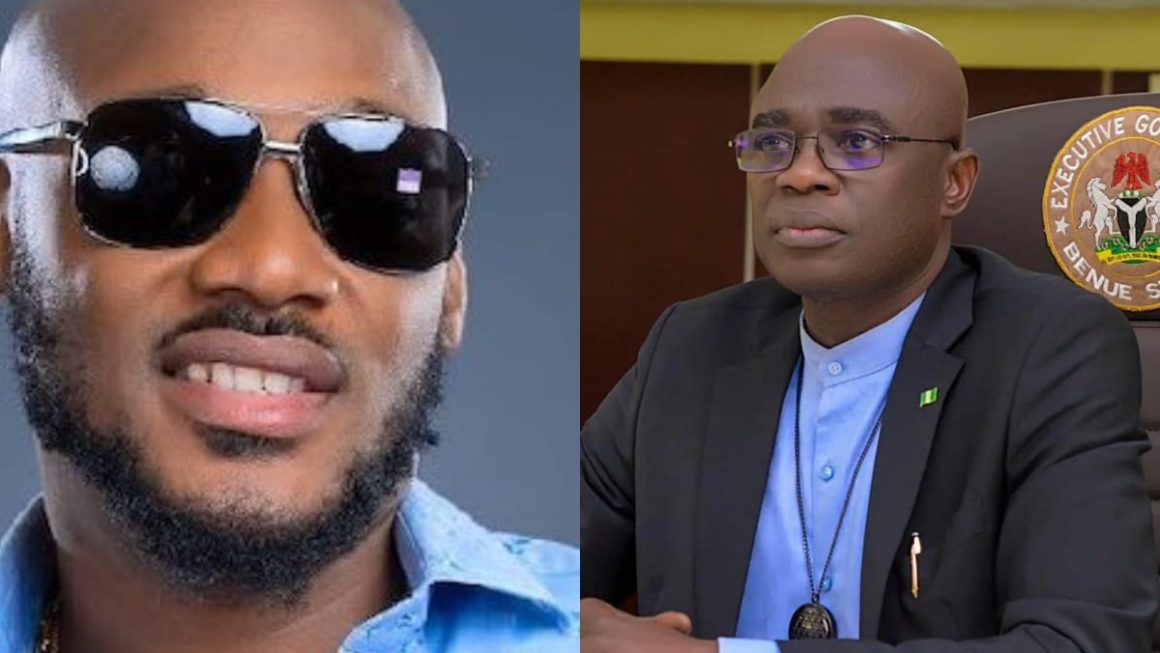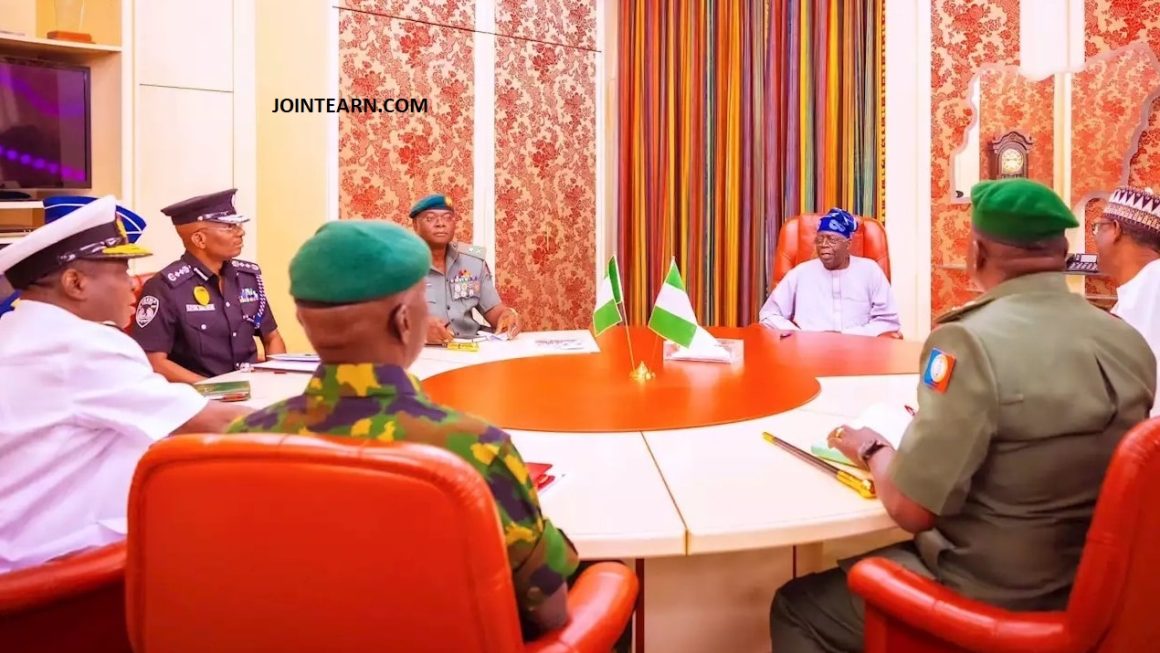As Nigeria inches closer to the 2027 presidential elections, a sense of confidence is building around President Bola Tinubu’s prospects for re-election. Tope Fasua, Special Adviser to President Tinubu on Economic Affairs, has expressed his conviction that no opposition candidate can successfully challenge the incumbent president in the next election. This assertion comes amid ongoing political maneuvering and coalition-building efforts by opposition parties.
Speaking on condition of anonymity, the aide, who is considered a close confidant of Tinubu, made the assertion during a private briefing with journalists, noting that the current political dynamics and the growing influence of the ruling All Progressives Congress (APC) would provide Tinubu with a significant advantage in the 2027 elections. According to the aide, Tinubu’s legacy, the consolidation of power within the APC, and his ability to navigate Nigeria’s complex political terrain will make him a formidable contender.
Political Context Leading to the 2023 Elections
Bola Tinubu’s rise to the presidency has been marked by years of strategic political maneuvering. A former governor of Lagos State and one of the most influential figures in Nigerian politics, Tinubu has built a vast political network, particularly in the southwest region, which has played a crucial role in his ascension to the presidency. However, despite his influence, Tinubu’s path to the presidency has not been without challenges. The 2023 election was intensely contested, with opposition parties trying to capitalize on discontent with the current administration’s handling of the economy and security.
In the lead-up to the election, Tinubu faced significant competition from candidates like Atiku Abubakar of the People’s Democratic Party (PDP) and Peter Obi of the Labour Party. However, his political acumen, control of key party structures, and a broad coalition of supporters across the country played a critical role in securing his victory.
Aide’s Bold Prediction on 2027 Election
The aide’s comments regarding Tinubu’s prospects for the 2027 election reflect a high degree of confidence in the current administration’s ability to maintain power. The statement highlights several factors that the aide believes will make Tinubu’s re-election in 2027 almost certain. These factors include the APC’s control over critical national institutions, Tinubu’s political base, and his ability to capitalize on his first-term achievements.
Firstly, the aide emphasized that Tinubu’s political network, especially in the southwest, remains robust. The southwest has been a key stronghold for Tinubu and the APC, providing substantial support in the 2023 election. In addition, the president’s ability to unite diverse factions within the party is seen as a strength that will help him maintain control over the party’s machinery during the 2027 election cycle.
Secondly, the aide pointed out that Tinubu’s strong leadership and connections within the government and the ruling party will give him a substantial advantage in consolidating power. The political landscape in Nigeria is often influenced by the control of state apparatus and party machinery, and Tinubu’s influence over the APC is expected to be a key factor in his continued dominance.
Thirdly, the aide noted that Tinubu’s policies and initiatives during his first term would play a critical role in bolstering his bid for re-election. While the country faces numerous challenges, including insecurity and economic instability, the aide suggested that Tinubu’s administration will work toward addressing these issues, which would resonate with voters in the 2027 election.
Opposition Leaders Respond to the Prediction
The aide’s bold statement about Tinubu’s dominance in 2027 has raised eyebrows among opposition leaders. While some analysts agree that Tinubu’s political influence is formidable, others argue that the unpredictable nature of Nigerian politics could pose serious challenges to his re-election bid.
Opposition leaders, including Atiku Abubakar of the PDP and Peter Obi of the Labour Party, have expressed their belief that the political climate could shift dramatically by 2027. Atiku, in particular, has emphasized the importance of addressing Nigeria’s economic challenges, including high inflation, unemployment, and the cost of living. These issues are likely to be major talking points in the 2027 election, and the opposition sees an opportunity to capitalize on public dissatisfaction with the APC.
Peter Obi, the Labour Party candidate in the 2023 election, has also suggested that the 2027 elections will see a renewed focus on the country’s youth, who are increasingly disillusioned with the traditional political establishment. Obi’s grassroots movement, which drew substantial support from younger voters during the 2023 elections, is likely to continue gaining momentum, and some analysts believe this could create significant challenges for Tinubu’s re-election prospects.
The Role of Youth in 2027 Elections
The youth vote played a significant role in the 2023 election, particularly among those who supported Peter Obi and his Labour Party. Despite Tinubu’s eventual victory, the surge in youth engagement and dissatisfaction with the traditional political elites suggests that the 2027 election could see a more energized and politically active youth demographic.
The aide’s claim that Tinubu is virtually untouchable in 2027 may underestimate the potential of the youth vote and the growing discontent with the established political system. Nigeria’s youth, who make up a large proportion of the population, are increasingly seeking leaders who can address their concerns, especially with respect to employment, education, and the economy.
Challenges Facing Tinubu’s Administration
While the aide’s statement projects confidence, it does not ignore the significant challenges Tinubu will face during his first term. Economic instability, high unemployment rates, and ongoing security issues are some of the most pressing concerns that could affect the president’s popularity and re-election chances.
Moreover, the president will need to navigate tensions within the APC, as various factions within the party may challenge his leadership in the years leading up to 2027. The APC’s internal cohesion will be crucial, as any fractures within the party could provide openings for the opposition to challenge Tinubu’s dominance.
Public Opinion on Tinubu’s Prospects
Public opinion on Tinubu’s re-election bid remains divided. While some Nigerians believe that his re-election is inevitable due to his political prowess and control of key institutions, others argue that his administration must address the country’s pressing issues in order to secure a second term. The next few years will be critical in determining whether Tinubu’s first term can effectively address these challenges and maintain public support.
Conclusion
As Nigeria gears up for the 2027 presidential election, the prediction by an aide to President Bola Tinubu about his near-inevitability in the race has sparked discussions about the future of Nigerian politics. While the aide’s comments reflect confidence in Tinubu’s political base, it is clear that the coming years will present significant challenges that could alter the country’s political dynamics. The evolving role of the youth, opposition movements, and the handling of Nigeria’s economic and security crises will be key factors that determine whether Tinubu can successfully defend his presidency in 2027.










